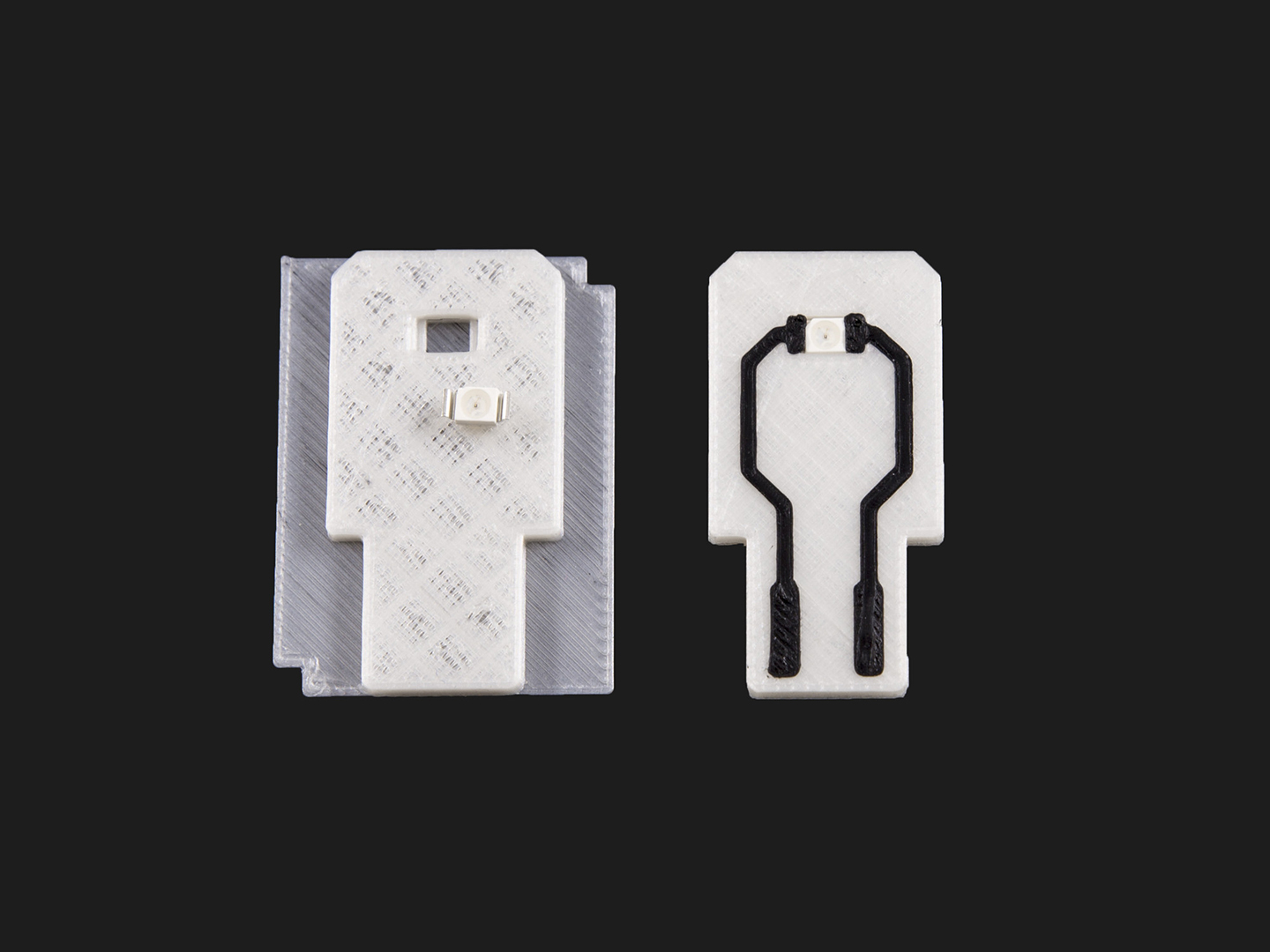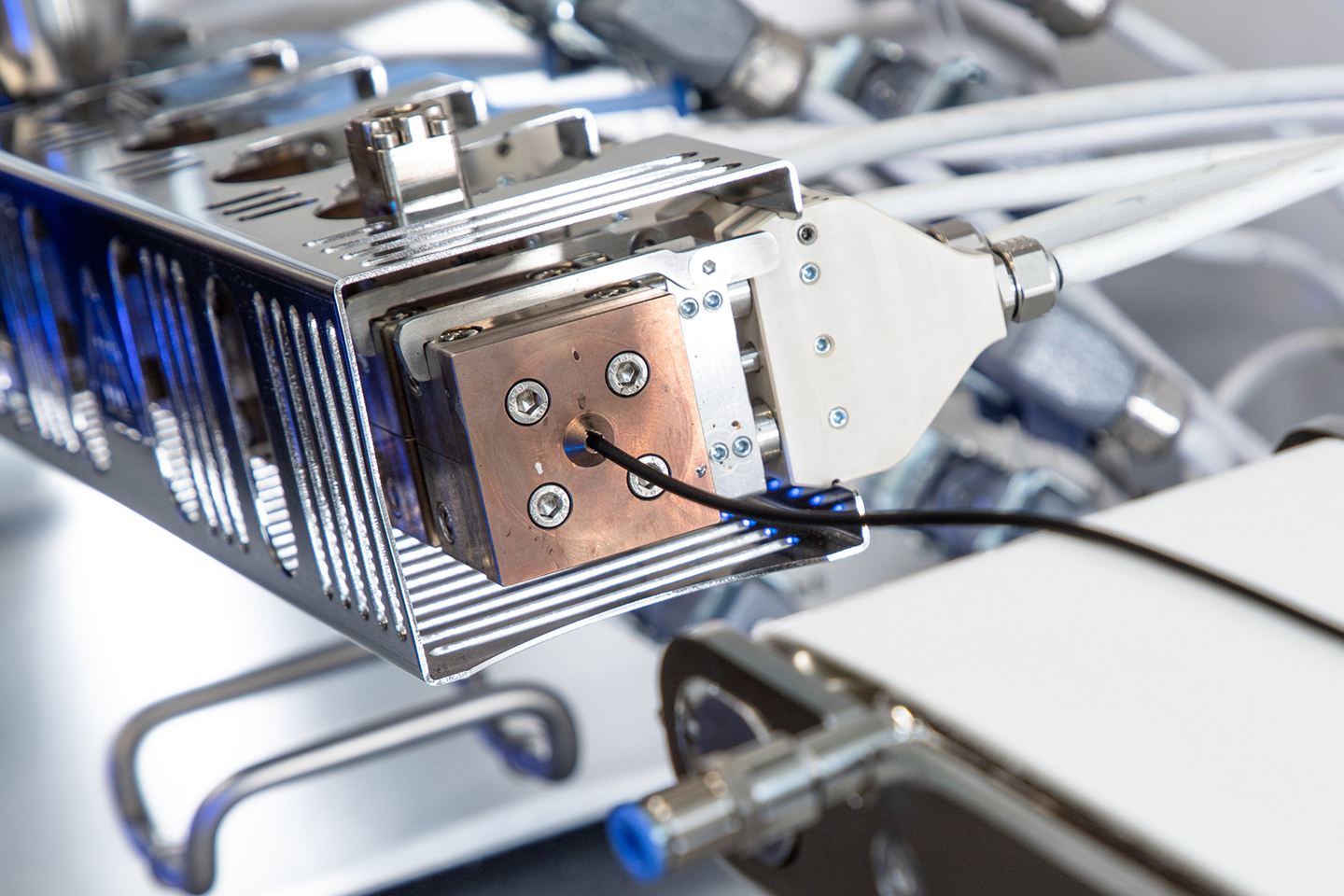Multiple different polymers can be used as a matrix material for extrusion-based additive manufacturing (AM). We produce, modify and optimize biobased and biodegradable polymers (e.g. PLA, PHB) for AM processes. High-performance thermoplastics (e.g. PEEK, PPS, PPSU) reinforced with short glass or carbon fibers are suitable for demanding applications, in which traditional engineering thermoplastics cannot be applied. Metals or carbon-based materials can be used as fillers, for example in electrically conductive composites. Processability, and especially the melt viscosity of the composite, plays an important role.
Besides traditional particles for functionalization, nanomaterials can also be used. Carbon nanotubes (CNTs) enable electrically conductive composites with considerably lower filler concentrations than can be achieved with metal fibers or conductive carbon black. As a result, the viscosity of the melt and the mechanical properties of the composite compared to the matrix material are less strongly affected.
 Fraunhofer Institute for Chemical Technology ICT
Fraunhofer Institute for Chemical Technology ICT
